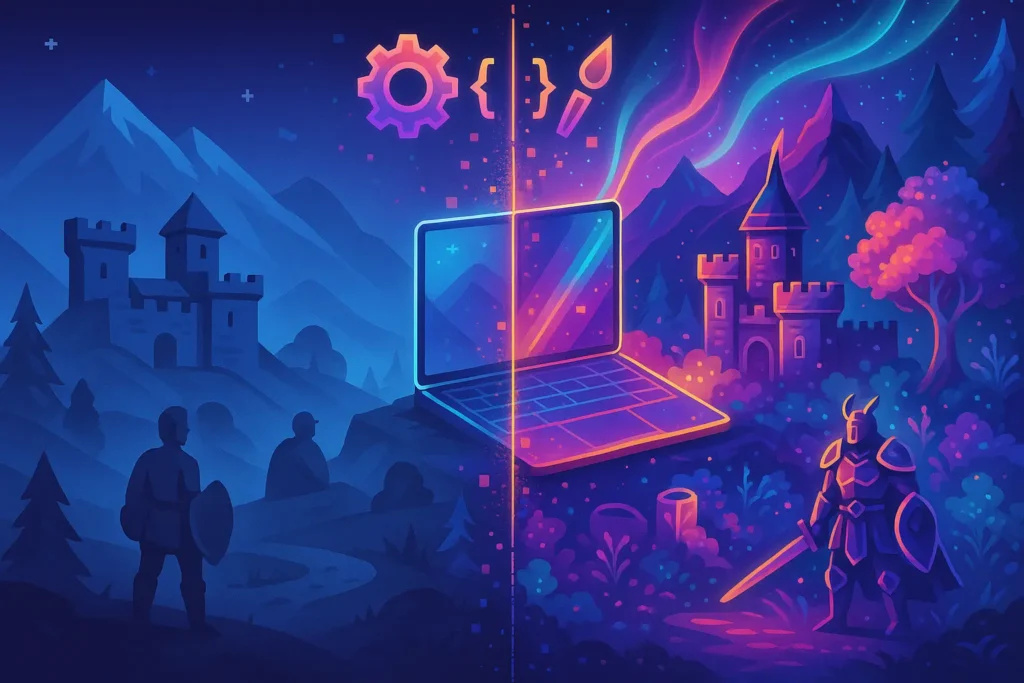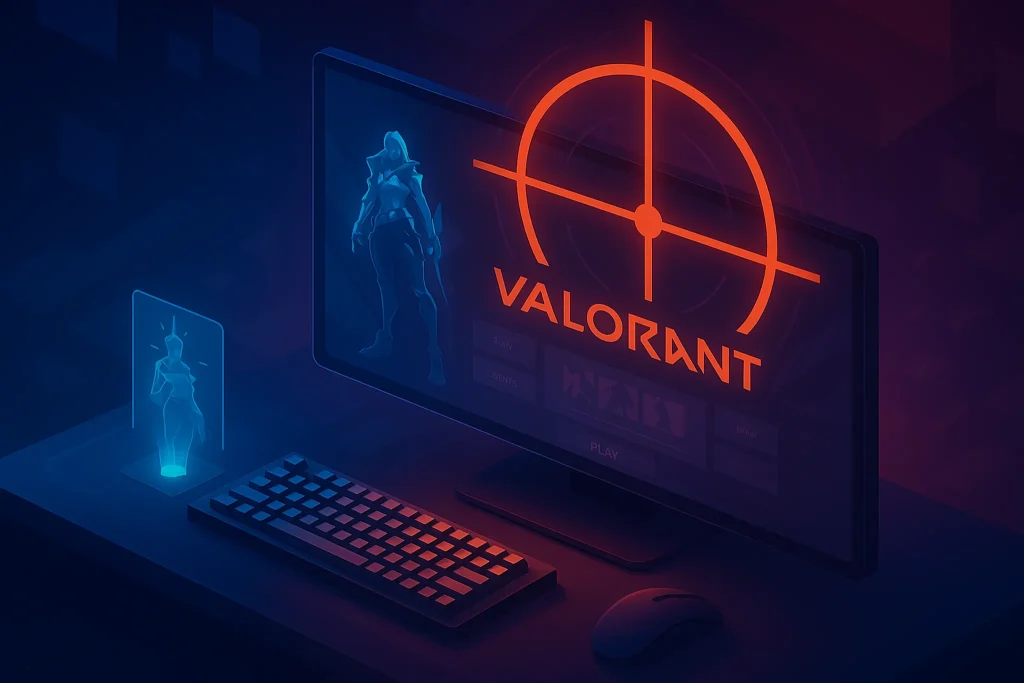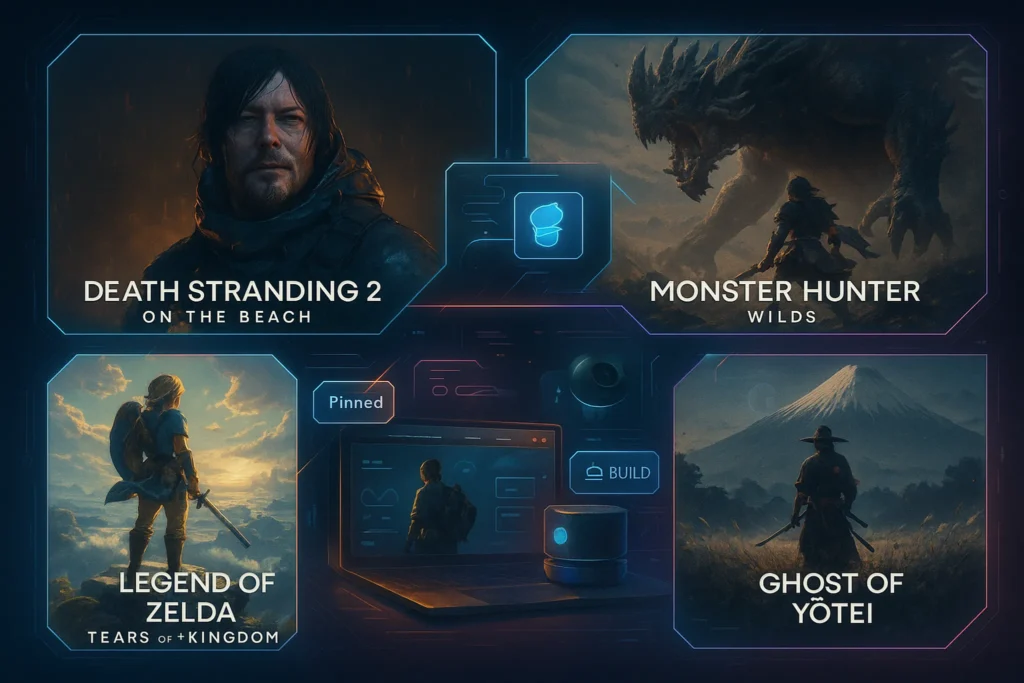🎮 Introduction: Why Mods Deserve the Spotlight
Video games don’t end when the credits roll. For millions of players, the real adventure begins when the community takes over. Fan-made game mods have been breathing new life into titles for decades—expanding worlds, fixing flaws, and sometimes reinventing entire genres.
From Skyrim’s sprawling fantasy reworks to the absurd creativity of GTA V’s chaotic modding scene, mods aren’t just add-ons. They’re statements of passion, imagination, and technical brilliance. At NerdChips, where we’ve looked at retro gaming comebacks and how AI is changing video game design, it’s impossible to ignore modding as one of the most important cultural forces in gaming.
🐉 Skyrim Mods: Endless Adventures Beyond the Main Quest
Few games embody the spirit of modding like The Elder Scrolls V: Skyrim. Released in 2011, it still thrives in 2025 largely thanks to its modding community. Visual upgrades like “Skyrim Script Extender” or “Skyrim HD – 2K Textures” transform the game into a modern masterpiece. Overhauls like “Enderal: Forgotten Stories” even replace Skyrim’s storyline with an entirely new RPG.
The longevity here is undeniable. A game that should have faded long ago continues to feel relevant because players reshape it constantly. Mods extend not just the game’s visuals but its cultural impact, proving that community creativity can outlast official development cycles.
🚗 GTA V Mods: Chaos, Creativity, and Community
Rockstar’s GTA V has become almost synonymous with mods. Players have turned Los Santos into a playground of endless experimentation. Hyper-realistic graphic mods push visuals beyond next-gen standards. Role-playing servers powered by mods give players entire second lives as police officers, criminals, or taxi drivers.
But the magic isn’t only in the visuals. It’s in the creativity: flying cars, Thanos with Infinity Gauntlet powers, or photorealistic recreations of entire cities. GTA V shows how mods can transform a serious crime saga into both a comedy sandbox and a social platform.
This creativity mirrors the cultural energy we’ve seen in indie co-op games, proving that community-driven experiences often rival—or surpass—official content.
🧩 Why Mods Matter: More Than Just Fun
Mods matter because they shift power from developers to players. They let communities decide how games evolve. Some mods fix issues developers overlooked, while others expand features far beyond the original design.
Historically, mods have even birthed entire genres. Counter-Strike began as a mod for Half-Life. Dota grew out of a Warcraft III custom map. Without mods, the gaming landscape we know today would be drastically different.
For players, mods are empowerment. For developers, they are a reminder that audiences don’t just consume—they create. And for the industry, they’re an ongoing challenge: how do you nurture creativity while maintaining balance, quality, and fairness?
Ready to Explore Game Mods?
Discover mods that transform your favorite games—from graphic overhauls to total gameplay conversions.
🛠️ The Culture of Modding: Players as Creators
Modding communities are more than hobbyists—they are ecosystems. Forums like NexusMods or ModDB act as digital marketplaces of creativity. Developers and players collaborate informally, sharing tools, feedback, and improvements.
This collaborative spirit creates a cycle where passion fuels innovation. A modder improves textures, another builds on it, and suddenly an entire game looks and feels brand-new. In many ways, modding is parallel to open-source software: community-driven, iterative, and designed for collective benefit.
It also aligns with the rise of AI in gaming. As we explored in the AI revolution in gaming, tools are making it easier for non-programmers to build experiences. The future of mods may be even more inclusive, blurring the line between professional developers and passionate fans.
🌍 The Impact: Extending Lifespans and Inspiring Developers
For publishers, mods are a double-edged sword. On one hand, they keep games alive long after sales should have tapered off. Skyrim, GTA V, and Minecraft remain relevant largely because of mods. On the other hand, they challenge business models built on DLCs and microtransactions.
Yet many studios have embraced mods as a form of free marketing and long-term engagement. Bethesda actively supports modding through the Creation Kit. Valve nurtured modders until they created genre-defining games. Even indie studios often encourage mods to expand community connection.
This impact goes beyond economics. Mods are proof that creativity doesn’t end when the developer ships a game—it evolves endlessly in the hands of players.
📜 A Brief History of Modding
The roots of modding stretch back to the 1980s, when hobbyists tinkered with arcade ROMs. But the modern era began in the late 1990s and early 2000s with Half-Life, Warcraft III, and Quake. These games gave players tools—and freedom—to reshape experiences.
From there, entire careers were born. Developers like Minh Le (co-creator of Counter-Strike) went from hobbyist to industry leader. Modding became not just fan service but a training ground for the next wave of professional developers.
In many ways, modding has shaped the trajectory of gaming as much as consoles, graphics cards, or engines have.
🧑🤝🧑 The Human Side: Why Players Mod
Mods aren’t only technical—they’re emotional. Players create mods because they want to share their vision, fix what they love, or expand worlds they’re attached to. A fan of The Witcher 3 might craft new quests to honor Geralt’s story. A Minecraft enthusiast might design realistic landscapes to share with others.
This emotional investment keeps games alive in ways official expansions rarely achieve. Mods become a dialogue between fans and developers, where creativity becomes community property.
Want More Gaming Culture Insights?
Join the NerdChips newsletter to explore stories of gaming culture, modding communities, and the future of play.
No spam. Just value-driven content for gamers, creators, and tech fans.
⚖️ Legal & Ethical Dimensions of Modding
Modding isn’t always a black-and-white practice. While some studios openly encourage fans to create and share mods, others restrict or even shut them down due to copyright and licensing concerns. For example, Bethesda actively supports Skyrim mods through Creation Club, while Rockstar has historically walked a fine line with GTA V—supporting creative projects but cracking down on mods that affect online balance.
This tension highlights a deeper ethical question: where do we draw the line between celebrating creativity and protecting intellectual property? For players, mods often feel like free expression. For publishers, they can represent lost revenue or security risks. Striking a balance will be critical for the future of modding, especially as mods become more advanced and commercially valuable.
💰 Economic Impact: Mods as Hidden Revenue Drivers
Mods don’t just extend the life of games—they also drive sales. Skyrim has sold over 30 million copies, with a large part of its longevity tied directly to its modding scene. Similarly, GTA V’s continued popularity (and billions in revenue) owes much to its thriving modding and RP communities.
From an economic perspective, mods act as long-tail marketing. They keep older titles relevant, ensuring new players still buy them years later. Even indie games like Stardew Valley benefit, with mods introducing fresh mechanics that keep communities engaged.
This phenomenon links directly to discussions we’ve had about retro gaming comebacks: community-driven energy keeps old games alive, both culturally and financially.
🤖 The Future of Modding: AI as a Creative Catalyst
AI is changing the rules of game design, and modding is no exception. In the coming years, AI-assisted tools will let even non-coders create mods by simply describing what they want. Imagine typing: “Add a new dragon with ice breath to Skyrim,” and having AI generate the assets, animations, and balance mechanics automatically.
This democratization of modding could transform the scene, making it more inclusive and diverse. Tools like generative AI will also accelerate iteration, allowing communities to build complex worlds faster than ever before. As explored in the AI revolution in gaming, the line between fans and developers will continue to blur, turning more players into creators.
👥 Community Stories: From Fans to Studios
Many mods begin as passion projects but evolve into industry-shaping ventures. Counter-Strike started as a Half-Life mod before becoming one of the biggest FPS franchises ever. Dota was born from a Warcraft III custom map, spawning an entire MOBA genre. Even PUBG traces its DNA back to modding experiments.
Beyond these famous examples, smaller communities showcase the same spirit. Projects like Stardew Valley Expanded or Cities: Skylines overhauls prove that fans can outpace studios in delivering content that feels authentic and deeply engaging. For some modders, these projects become career launches, with studios hiring them based on their community work.
These stories remind us that modding isn’t just about tweaking games—it’s about fostering innovation that can ripple through the entire industry.
📊 Comparison Matrix: Which Games Have the Best Modding Communities?
| Game | Why It Stands Out | Types of Mods Most Popular | Community Strength |
|---|---|---|---|
| Skyrim | Huge toolset, Bethesda’s support, endless content | Visual upgrades, quests, total conversions | ★★★★★ |
| GTA V | Sandbox freedom, role-play servers | Graphics, RP mods, chaos/fun mods | ★★★★★ |
| Minecraft | Sandbox DNA, easy-to-build mods | Blocks, biomes, gameplay mechanics | ★★★★★ |
| Stardew Valley | Indie-friendly, deeply personal mods | New crops, characters, expanded maps | ★★★★☆ |
| Half-Life / Source Engine | Birthplace of genre-defining mods | FPS conversions, total overhauls | ★★★★☆ |
This quick snapshot shows how different communities specialize. Skyrim and GTA V dominate in scale and variety, Minecraft leads in accessibility, and Stardew Valley demonstrates how even small games can thrive with modding.
🧠 Nerd Verdict
Modding is more than fan service—it’s one of the most important forces in modern gaming. It extends lifespans, fuels creativity, and often reshapes the industry itself. At NerdChips, we see modding as proof that gaming isn’t just something you consume—it’s something you build, share, and evolve with.
❓ FAQ: Nerds Ask, We Answer
💬 Would You Bite?
If you could only play one game with mods for the rest of your life, which game would you choose—and why?



